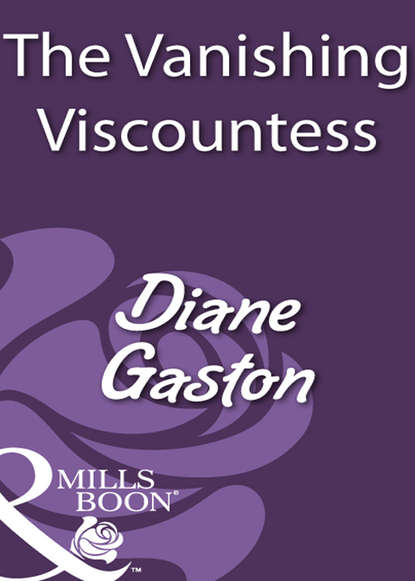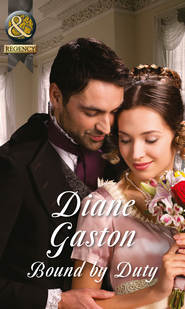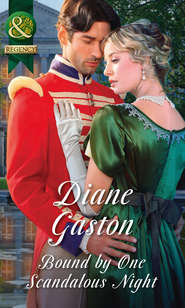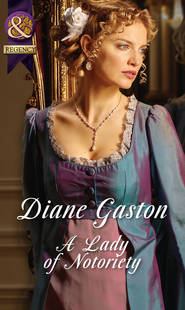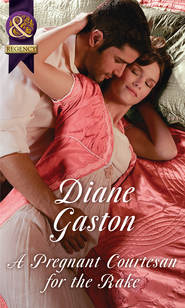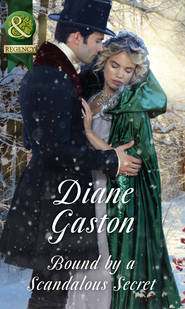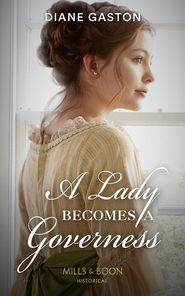По всем вопросам обращайтесь на: info@litportal.ru
(©) 2003-2024.
✖
The Vanishing Viscountess
Настройки чтения
Размер шрифта
Высота строк
Поля
She shuddered and glanced at Tanner, so gloriously alive, so masculine even as he slouched in his chair.
His expression had sobered. “What is it?”
She blinked. “I do not understand what you mean.”
He gestured towards her. “You were thinking of something. Something disturbing, I’d wager.”
She averted her gaze. “Nothing, I assure you.”
When she glanced back at him, he frowned, and the peaceful, intimate feelings she’d had a moment before fled.
All she need do was think of Corland and clouds thickened.
There had been a time when she blamed all her woes on her husband. He was to blame for many things—his gambling, his debts, his affairs—but he would never have done to her what her own cousin had done. Who could have guessed Wexin was capable of such treachery?
Was Wexin still among Tanner’s friends? she wondered. If she had so difficult a time believing what her cousin had done, surely Tanner would not believe it.
“Do not be angry with me, Tanner,” she murmured.
His brows rose in surprise. “I am not angry.” He gave her a very intent look. “I merely wish you would tell me what cloud came over you. Tell me your secrets. Trust me. I know I will be able to fix whatever is wrong.”
She shook her head.
“Then at least tell me your name,” he persisted, putting that teasing tone back into his voice, but still looking at her with serious eyes. “Tell me your given name. I gave you mine. Adam. When we are private together, let me address you with one name that belongs to you.”
She stared back at him.
Would he know the Vanishing Viscountess by her given name? Would her name be enough to identify her as Wexin’s cousin, Corland’s widow, the young girl who’d had such a tendre for him at age eighteen that she blushed whenever he walked past her?
Marlena had been named for a distant French relative who’d died on the guillotine in the year of her birth. She had been Miss Parronley to everyone, save childhood friends and family and Eliza. And Wexin, of course. Even the newspapers after Corland’s death and her flight had never printed her given name. She could not think of a single instance when Tanner would have heard of the name Marlena and, if he had, would never associate it with the Vanishing Viscountess. She opened her mouth to speak.
Tanner stood, blowing out a frustrated breath. “Never mind.” He ambled over to the window. “Forgive me for pressing you.”
The moment to tell him had passed. Her body relaxed, but she grieved the loss of the easy banter between them.
“I asked Mr Gwynne about coaches,” he said, still looking out of the window. “I told him we were travelling north.” He turned to her.
“Yes, I wish to travel north,” she said.
“To Scotland, correct?”
She nodded.
“Well, Mr Gwynne’s recommendation was to take a packet to Liverpool.” He looked at her intently. “Where in Scotland?”
She bit her lip.
He made a frustrated sound and turned away.
“Edinburgh,” she said quickly. “I wish to go to Edinburgh.”
He turned back, lifting a brow. “Is Edinburgh your home?”
She hesitated again.
He waved a dismissive hand. “I ought to have known not to ask.”
She turned away, her muscles tensing. “A ship.”
“Could you bear it?” His voice turned soft.
She faced him again and saw sympathy in his eyes. “If I must.”
“It sails in the morning.”
“I will be ready.” She would get on the packet, in any event, no matter if her courage accompanied her or not. She stood, but was hesitant to approach him. “What will you do?”
His brows rose. “Why, accompany you, of course. It would look odd otherwise.”
She released her breath. The ship would be a little less terrifying with Tanner at her side.
Liverpool would certainly be big enough a town for her to pass through unnoticed. From there she could catch a coach, perhaps to Glasgow first, then on to Edinburgh.
So close to Parronley. Her estate. Her people. One place for which she yearned, but dared not go.
She was Baroness Parronley, a baroness in her own right. The Parronley barony was one of the few that included daughters in the line of succession, but Marlena would have preferred not to inherit. It meant losing her dear brother Niall and his two little sons. Her brother and nephews perished of typhoid fever. So unexpected. So tragic.
Marlena had been with Eliza in Ireland when they read the account in a London newspaper that Eliza’s husband had had sent to him. Marlena could not even mourn them, her closest family. She could not wear black for them, could not lay flowers on their graves.
With the shipwreck she would eventually be pronounced dead, the end of a baroness who had never had the chance to claim her title, the end of the Parronleys. Wexin would inherit. Her people, the people of Parronley, would be in the hands of a murderer.
Another knock on the door sounded, and Mrs Gwynne herself brought in their supper on a big tray. Two steaming meat pies, a pot of tea, and a tall tankard of ale.
Tanner took the tray from the woman’s hands and set it on the table. “Ah, thank you, Mrs Gwynne. You even remembered ale.”
She beamed and rubbed her hands on her apron. “After all these years, I ought to know what a man wants.”
He smiled at her. “You knew what this man wants.” He lifted the tankard to his lips and took a long swallow.
After the woman left, Marlena picked at her food. The camaraderie she’d shared with Tanner had disappeared. They ate in silence.
As she watched him finish the last of the crumbs of the meat pie’s crust, she blurted out, “You do not have to travel to Liverpool with me, if you do not wish it.”
He looked up at her with a mild expression. “I do not mind the trip.”
She sipped her cup of tea. “If it were not for me, you would probably be headed for London tomorrow.”
“Probably,” he responded.





